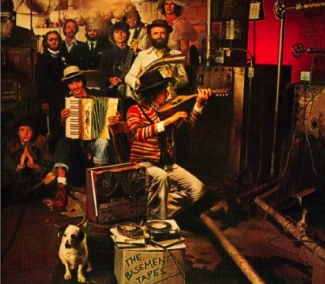I came across this piece of music while reading David Byrne's latest post about his new project, Contemporary Color. One of the groups in a competition he was observing performed to a song by Vienna Teng called “The Hymn of Acxiom.” A hymn is a song of praise.
Acxiom is a database company that tracks personal data on the Network. They sell that data to other corporations for a variety of purposes to be used in many contexts. When I was working in online identity, we hired Acxiom to create out-of-band questions as a second factor in user authentication. For instance, you might provide a password and then answer a question from Acxiom. For example, here are three addresses. Have you ever lived at any of them? They can create that kind of question on the fly because they know everything about just about everyone.
Traditionally a hymn is addressed to a deity. The form of this song tells us something about the attitude of the singer. The hymn is also meant to be sung by the community surrounding the deity. Stewart Brand believes that humans have supplanted the gods, and must now act like it, in the face of global warming and other planetary disasters. Certainly humans, as a species, have put a stamp on the fate of the planet and all its inhabitants. But an individual human doesn't have the power of the whole species. And as “gods” is a plural, it doesn't preclude the possibility of others. Say, Acxiom, for instance.
A Hymn of Acxiom
Somebody hears you. You know that, you know that…
Somebody hears you. You know that inside.
Someone is learning the colors of all your moods, to
(say just the right thing and) show that you’re understood.
Here you’re known.
Leave your life open. You don’t have, you don’t have…
Leave your life open. You don’t have to hide.
Someone is gathering every crumb you drop, these
(mindless decisions and) moments you long forgot.
Keep them all.
Let our formulas find your soul.
We’ll divine your artesian source (in your mind),
Marshal feed and force (our machines will)
To design you a perfect love—
Or (better still) a perfect lust.
O how glorious, glorious: a brand new need is born.
Now we possess you. You’ll own that, you’ll own that…
Now we possess you. You’ll own that in time.
Now we will build you an endlessly upward world,
(reach in your pocket) embrace you for all you’re worth.
Is that wrong?
Isn’t this what you want?
Amen.
Comments closed





